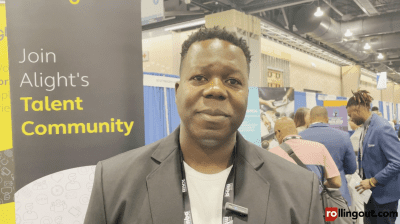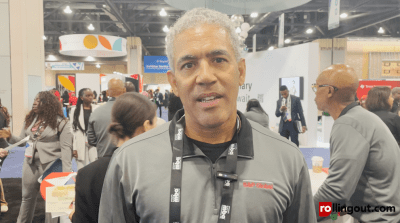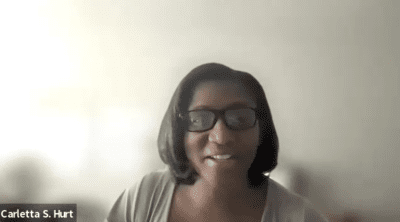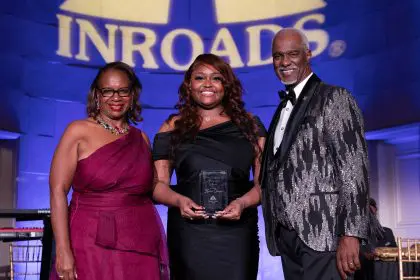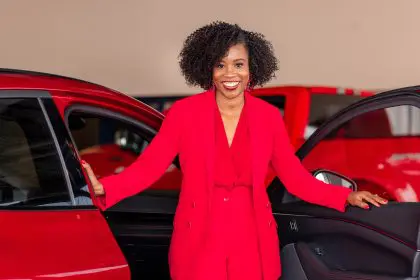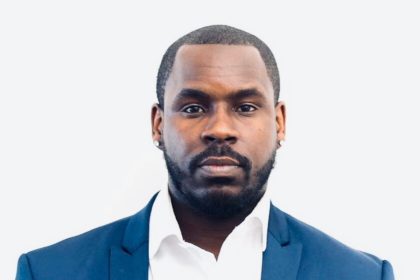When the National Black MBA Association’s board agreed that their interim president possessed too much vision and leadership experience to be set aside in an attempt to appoint a new president, they made one of the most viable decisions they could for the 30-year-old professional organization. At the helm of the progressive association for the past 18 months has been Jesse Tyson, a retired ExxonMobil executive who led the multinational oil and gas corporation’s global aviation business, which is based in Brussels, Belgium, where he worked across multiple industry groups in developing strategic solutions around customer segmentation, operational excellence and shareholder return requirements with clients in more than 50 countries and 500 locations across the globe.
On the closing day of the 36th annual NBMBAA® Conference & Exposition held in Atlanta, Tyson talks the success of this year’s conference and what members and attendees have to look forward to throughout the year.
Did this year’s conference meet your expectations?
Yes. We always seem to meet our expectations when we come to Atlanta. This is our fifth year in Atlanta. We have never been to a city five times before. Atlanta seems to always bring the energy. We have such a strong academic community with all the HBCUs and the other universities. That gives us a lot as a base to pull from. We have a lot of corporate partners who are headquartered here. And, there’s a large entrepreneurial community in Atlanta. We are growing the entrepreneurial programs in our organization.

Career Expo Opening Ribbon Cutting
NBMBAA Conference
Atlanta (Photo credit: 106FOTO)
When did you become a member of the National Black MBA Association?
I am a lifetime member. I joined in the early 70s when I first started my career with Exxon Mobil.
What role did technology play in this year’s conference?
We have charging stations that were made available. Google is a part of the conference for the first time. Dell has always been a partner.
One of the things we’re doing is developing programming around technology, including moving away from paper presentations. There’s an app available, which helps conference attendees navigate throughout the venue and it provides [up-to-the-minute] updates.
We’re also instituting technological changes at our headquarters, where we are migrating to look and feel the same as our corporate partners in their environments.
As an attendee of past conferences, I’ve noticed black doesn’t just mean African American.
Correct. We are the National Black MBA Association but we are an all-inclusive organization. Eighty-seven percent of our members are black, and most of that number is African American. The remaining 13 percent is comprised of a variety of ethnicities.
At conference, 45 percent of our conference attendees are not African American. We have a large group of Asian and Latino attendees, as well as Caucasian, which is mostly female.
We’ve evolved from an organization that exclusively, in the 70s at conference would be all African American to today we look more like what America looks like. Get ready for it; it’s a new day.

What can we look forward to from the NBMBAA in terms of activities and opportunities from now until next conference?
We are moving away from being a conference-centric organization to do more year-round programs. We signed an agreement with Judy Smith, the inspiration behind the ABC show “Scandal.” We did a symposium in Memphis in April, one in Chicago in July around leadership. We are doing more of that going forward.
In terms of the Whiteboard Challenge, where an idea is pitched and the winner receives a $10,000 prize, we’ve talked about raising the stakes and taking it on the road to get more cities and teams involved in the challenge.
What is the NBMBAA’s added value for corporate partners?
We help them acquire quality time and train and retain that talent, which result in the development of talent that gives them the return on investment they are seeking when they partner with us. We will continue to step up our game in terms of the programming we offer and focus on quality to make sure we are best in class. We aren’t the only organization in this space, but we are the largest professional organization of its kind in this country.
There is a reason 45 percent of our conference attendees are not black. We shouldn’t lose site of that. It’s about the quality we offer and the world sees it and gets it.



